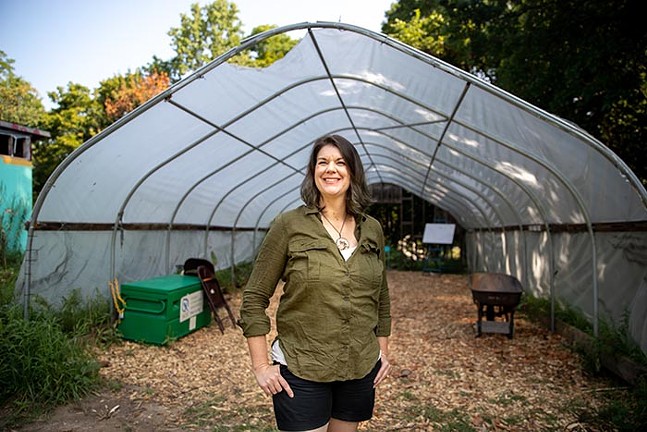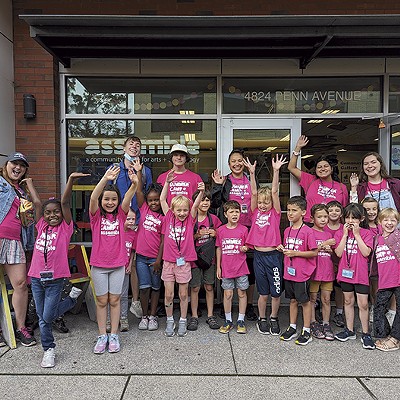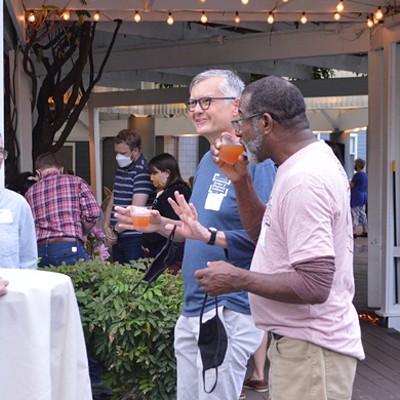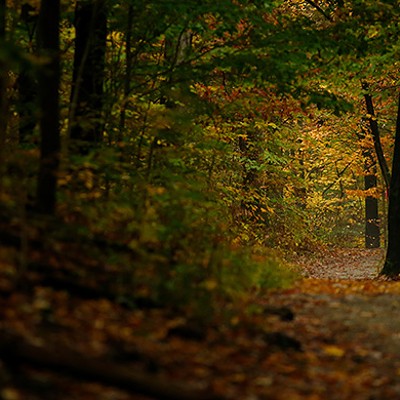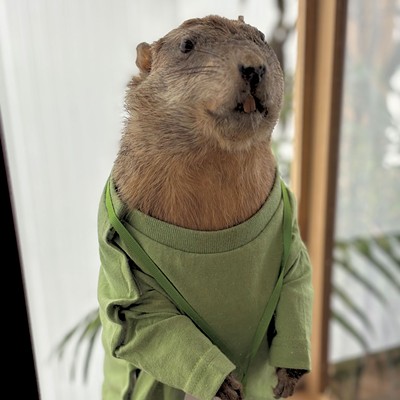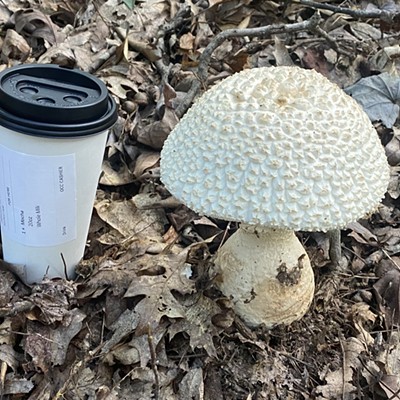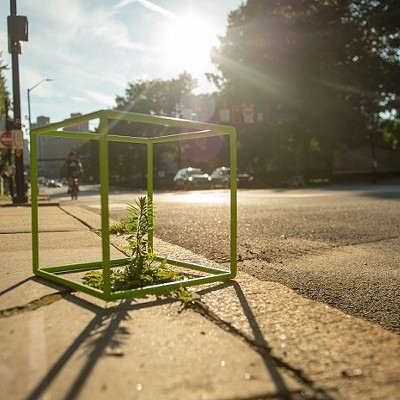But even just a tiny plot of land can make a big impact when it comes to urban farming.
And Allegheny Land Trust, a nonprofit preservation group which works with communities to save, and make public, green space throughout the Pittsburgh region, is working to protect existing urban farms in the city.
ALT has expanded its mission to include urban gardens, small-scale agricultural ventures where groups grow fresh produce in abandoned or unoccupied lots. To help accomplish this, ALT joined up with fellow nonprofit, Grow Pittsburgh, to create the Three Rivers Agricultural Land Initiative, or TRALI, a partnership focused on purchasing and protecting urban agricultural lands in perpetuity. This includes Kincaid Street Garden in Garfield, which TRALI announced in July as being permanently protected.
TRALI signals an expanded mission for ALT from acquiring large parcels of land for outdoor recreation and preservation of wilderness, to a focus on urban gardens maintained by neighborhood residents. The groups hope the change can improve Pittsburgh’s landscape by providing urban gardens and sustainable farming even in popular neighborhoods that are seeing a lot of development.
“Over the years, we feared that the lots could be taken out from under us, as has happened to other community gardens in Pittsburgh,” says Lydia Yoder, one of the 25 volunteers who work the Kincaid Street Garden each year, in a press release. “That fear prevented us from making long-term investments in the garden. We can now plan for a long future for the garden.”
As a result of ALT and Grow Pittsburgh’s initiative, communities with a history of blighted properties and neglect could see a positive shift to increased green space and food security. According to the Pittsburgh Department of City Planning, one in five Pittsburgh residents was food insecure in 2020. This means that over 60,000 residents struggle to have healthy, adequate, and culturally appropriate food.
More broadly, TRALI would like to see their model extend into the preservation and growth of affordable housing, so that people of all income levels can enjoy the benefits of protected community gardens.
Since forming in 1993, ALT has focused on acquiring large tracts of land for outdoor recreation and other uses. This includes Dead Man’s Hollow, a 450-acre park along the Youghiogheny River just south of McKeesport, to the 148-acre Churchill Valley Greenway, an abandoned former country club spanning the municipalities of Churchill and Penn Hills. ALT also acquired Girty’s Woods, a 155-acre stretch of woodlands seen as providing vital green space, wildlife habitat, and stormwater management in the municipalities of Millvale, Shaler, and Reserve.
Regardless, ALT's marketing and communications director Lindsay Dill says TRALI still fits within the organization’s mission of “conserving and caring for local land that contributes to the quality of life for everyone.”
“These local, small parcels of land are doing a lot,” says Dill. “They’re not a Churchill Valley Country Club, but they are helping to provide food security and community building and local close-to-home green space.”
Rayden Sorock, director of community projects at Grow Pittsburgh, says he noticed a shift among land trusts in general to look beyond substantial parcels of land and into urban farms and gardens, which could have a more immediate impact.
“If we’re looking at smaller parcels within the city, we’ll actually be able to reach a greater number of people within a mile or so close to that site than some of the spaces that are farther out, and maybe less people interact with them, even though they're much bigger spaces,” says Sorock.
In the past, many community gardens in Pittsburgh were at the whim of private landowners or even the city, which owns many vacant lots.
But in 2017, ALT and Grow Pittsburgh joined forces to purchase three lots that were already operating as community gardens — the Eastfield Cooperative Garden on Black Street and the Garden Dreams Urban Farm & Nursery in Wilkinsburg, both of which were officially protected in December 2019, as well as Kincaid. The goal is to preserve this use in perpetuity.
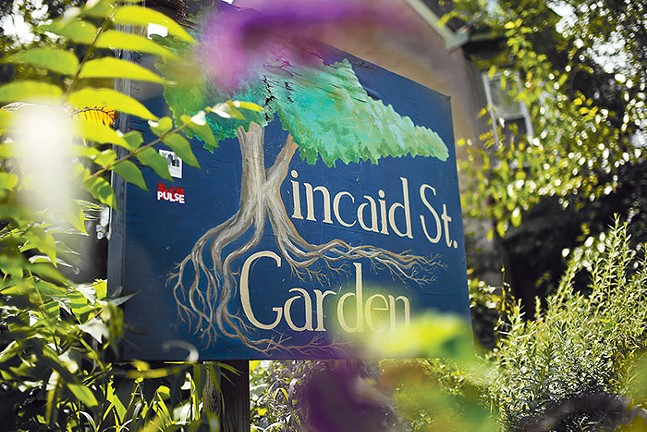
Alyson Fearon, ALT’s senior director of community conservation and resiliency, says TRALI is looking at acquiring around 10 more urban agricultural projects, including the Ballfield Farm, an organic farming collective in the Perry South neighborhood of Pittsburgh's North Side.
Sorock says that, while ALT could have created an urban garden protection program on its own, TRALI gave them the chance to combine their organizations' respective talents and work toward a common goal.
“We aren't in the business of being a land trust or owning property, and Allegheny Land Trust really isn't in the business of connecting with community gardens and understanding the urban ag scene, for the most part,” says Sorock.
Sorock says the primary goal of TRALI is to offer protection to groups that have zero rights or knowledge when it comes to land ownership, no matter how long they have worked on a plot.
“We've seen gardens struggle and fail for a lot of different reasons,” says Sorock. “But one of the ones that is the most disheartening is when there's development pressure, and they're just not able to stay in that space long term. Or they're kind of timid about creating long-term investment in that space. Whereas if they were just not worried about being in their space long term, they could focus their energy on other things that are more important, like the community-building aspect of it. So we really saw that need.”
TRALI offers a permanent alternative to programs like Adopt-A-Lot, a Department of City Planning arm that gives groups three-year, renewable leases to take over city-owned vacant lots to grow food or flowers, or set up rain gardens. By 2018, Adopt-A-Lot claimed that 114 vacant lots — a total of 10 acres — had been transformed around the city as part of 40 community projects.
However, Fearon points out that, while desirable in some cases, including, for example, when those with leasing agreements realize that lots are not ideal for growing, Adopt-A-Lot can leave groups in a constant state of uncertainty, as they could be refused a lease if they decide to re-apply.
“Everything you put on the space has to be removable,” says Fearon, pointing out that structures like garden boxes and sheds would not be built into the ground. Still, she says some of the gardens TRALI works with have gone through the Adopt-A-Lot program and have been able to secure the land for upwards of 10 years or more.
The TRALI venture, in essence, takes the stress off of volunteers to actually buy the land permanently, a process that could involve convincing a developer to sell, paying off any taxes owed against the property, transferring city-owned land, and other issues. In the case of Kincaid, Sorock says the process was amicable, as the owners recognized that the lot was not ideal for development and were willing to work with ALT.
Still, Fearon says garden lot groups still have to meet certain criteria. She says TRALI does outreach at least once a year to educate community gardens about the program, including an upcoming event on Sept. 11 at the Hilltop Urban Farm in Pittsburgh’s St. Clair neighborhood.
From there, groups are invited to apply for the program but must have a proven track record of success and fulfill other requirements.
Shelly Danko+Day serves as the coordinator of Adopt-A-Lot, and says Pittsburgh deals with many empty lots as a result of the city’s loss of industry in the 1980s, which led to a number of people losing or abandoning their homes. But solving the city’s high level of vacant lots is far more complicated than just selling them off, and can hinge on everything from lots being privately owned to changing markets.
“Say your grandfather had a house in Lawrenceville and left it, and then the city has demolished the house and taken responsibility for it,” says Danko+Day. “And then we contact you and we say, ‘Hey, this house is rightfully yours because you're the heir.’ And so you can have this house if you give us the $80,000 that's owed on it. Now, 20 years ago, you would have been like, ‘Nah, go ahead.’ But today, you'd be like, ‘I'll be right back. Let me go to the bank and get a loan,’ because you can sell a vacant lot for probably $200,000 in Lawrenceville today.”
To help streamline the process, the city released an Open Space Plan in 2013 that laid out how to optimize parks, trails, and, of course, vacant lots. At the time, the plan said that Pittsburgh contained approximately 30,000 vacant, distressed, or undeveloped properties. From there, the city created Adopt-A-Lot in 2015 to give public access to the land, even if it’s temporary.
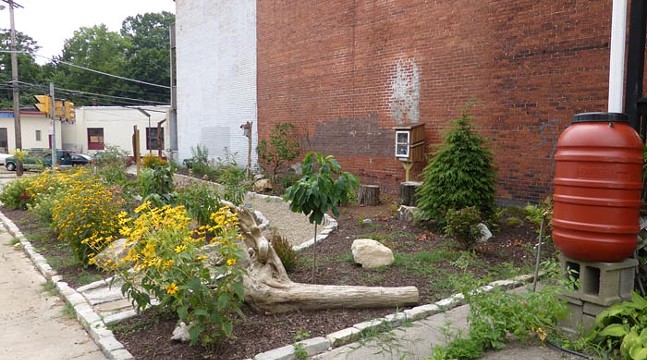
In the meantime, she believes TRALI fills that need, but wonders how the program will fare down the road, like when a community group may no longer want to use a lot for gardening.
Speaking to Danko+Day’s concerns, Sorock says that, should a garden fall apart or need to have a major leadership transition, Grow Pittsburgh will be there to “help steward that process.” He adds that a lot can also serve as passive green space in cases where gardening is no longer viable.
“There are so many benefits of these spaces,” says Sorock, pointing out how they can provide stormwater management, places for community engagement, and more. “We’re really looking at that whole picture.”
Regardless, Danko+Day says TRALI gives spaces like Kincaid a purpose and takes some pressure off the city to manage them.
“It’s on everyone’s radar because what could happen is, if it’s not on anyone’s radar, it’s just a lot and block number in our database and looks like it’s just a vacant lot and we can sell it,” says Danko+Day. “And the community’s use of it is not recorded there at all … So having them registered as adopted and having that recorded in the database is really helpful.”
For now, TRALI is not going anywhere, with Sorock saying that ALT and Grow Pittsburgh renewed their joint venture agreement for another three years.
He hopes that TRALI will empower residents by giving them more ownership over their neighborhoods, but also possibly inspire nonprofit land trusts that work in housing, including City of Bridges and the land trust boards in Garfield and Oakland, to pursue something similar.
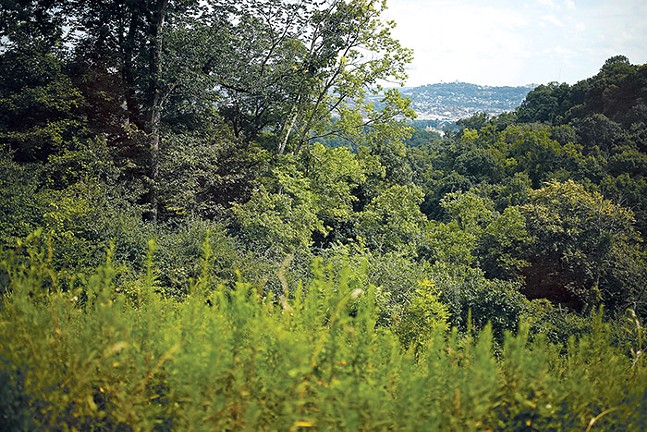
Located approximately at 5414 Kincaid St., the Kincaid Street Garden started in late 2012 when the Pittsburgh Urban Leadership Service Experience worked with the Garfield Community Action Team, Grow Pittsburgh, and Garfield residents to transform vacant parcels into growing space. Through TRALI, the garden was purchased as two parcels, one from East Liberty Development Inc., and the other from Penn Pioneer Enterprises. There are two adjacent parcels used by the garden that TRALI plans to protect as well.
John V. Stullken lives just a few blocks from Kincaid and has been involved with the garden for about four years. He says Kincaid occupies land on both the north and south sides of Kincaid Street, with the south side featuring individually managed plots where “folks grow typical garden produce such as tomatoes, beans, peppers, and leafy greens.” The north side of the garden is “cooperatively managed by the gardeners and features more perennial plants like herbs, flowers, and some fruit trees and bushes.”
Stullken says acquiring community control of almost any land parcel on the East End and most of Pittsburgh, has become more difficult as the city’s real estate market has heated up. This certainly applies to Kincaid, he says, as one of the parcels was actively for sale prior to the TRALI deal.
“Long term access for urban gardening and agriculture is critical,” says Stullken, who works professionally as a landscape and civil engineer, and now serves as the garden’s main point person for TRALI. “Urban gardening and healthy, functional green spaces are a key piece to healthy, functional communities. TRALI’s approach is great because it guarantees long-term access for communities, and has the money and resources to acquire land amidst other development priorities. Any successful approach to protecting urban gardens and farmlands requires adequate money and resources, and a clear-eyed understanding of the myriad other development pressures.”

